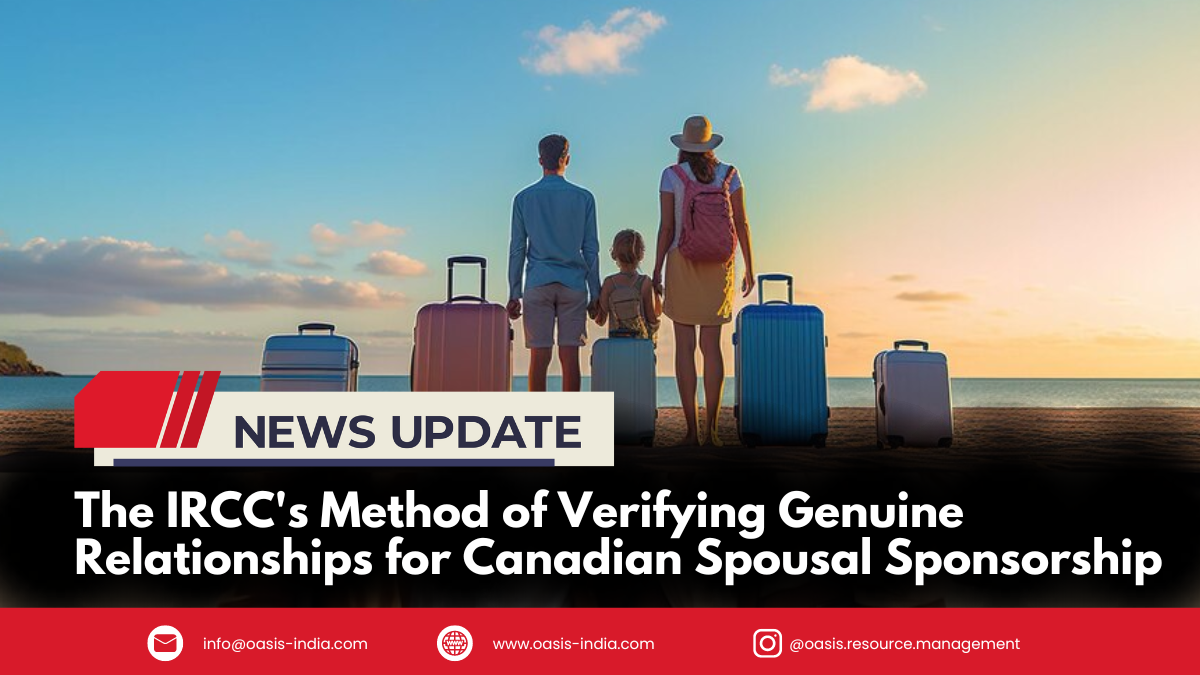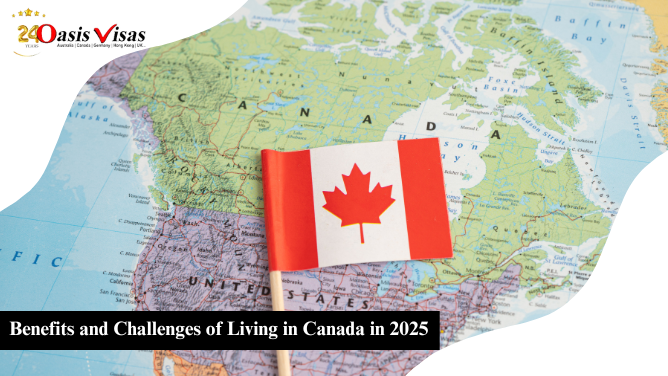
The IRCC’s method of verifying genuine relationships for Canadian Spousal Sponsorship includes submitting an application to bring your spouse to Canada.
If you want to get Canadian Spousal Sponsorship then you have to submit an application to bring your spouse to Canada through family class sponsorship.
IRCC conducts these evaluations because there are instances when a foreign national might seek to establish an insincere relationship with a Canadian citizen or permanent resident, aiming to obtain Canadian permanent resident status.
Meanwhile, the sponsor genuinely believes in their committed marriage or partnership. This situation can cause both emotional and financial challenges for the sponsor since they are required to commit to financially supporting their partner for three years from the date they obtain permanent resident status, regardless of whether the relationship dissolves.
Canadian citizens or permanent residents might also endeavour to engage in a business-like agreement and simulate a connection with a foreign national in exchange for a fee. To establish the authenticity of a relationship, multiple documents must accompany an application for sponsoring a spouse or partner. If an immigration officer requires additional confirmation of the relationship’s legitimacy, they might request the pair to attend an interview at an IRCC office.
During this process, both the sponsor and the applicant could be interviewed individually. To improve the economic immigration policies, the Canadian Government has brought numerous considerable changes to PR. If you want to understand economic immigration policy then Oasis visa will help you to Apply For Canada Family Spouse Visa.
If an officer remains unconvinced about the genuineness of the relationship, the foreign national would not qualify for sponsorship.
Proving the authenticity of a relationship:
The department mandates that all couples, including those of the same sex, furnish documentation that substantiates the genuine nature of their relationship. The exact types of documents needed can differ based on whether the couple is married or in a common-law arrangement within Canada.
Spousal Relationships
A married pair necessitates multiple official documents, which include:
✔️ A completed Relationship Information and Sponsorship Evaluation questionnaire, is provided in the application package.
✔️ A marriage certificate.
✔️ Proof of marriage registration with a governmental authority (local, provincial, state, or country).
✔️ Documentation of divorce, if applicable to either the applicant or spouse from a prior marriage.
✔️ For the principal applicant and sponsor with shared children, detailed birth certificates or adoption records specifying both parents’ names.
✔️ Wedding-related material such as invitations and photographs.
In circumstances where a same-sex couple’s marriage isn’t legally acknowledged by the foreign national’s country, they should apply under the category of a common-law relationship. If the pair hasn’t been able to cohabit due to visa limitations, they may apply as conjugal partners. If you are looking to sponsor a family member, make sure about the eligibility criteria of a Canada Family Sponsorship Program.
Common-Law Unions
Within Canada, a common-law relationship pertains to an unmarried duo cohabiting in a conjugal arrangement for a minimum of one year. They are required to submit the same documentation as married couples (excluding wedding photographs and invitations), as well as:
✔️ Proof of financial support or shared expenses between the principal applicant and sponsor.
✔️ Other evidence establishing recognition of the relationship by friends and/or family, like letters or social medical information indicating a public connection.
Additionally, for both married and common-law relationships, both the sponsor and principal applicant must provide items from at least two of the subsequent sets of documents:
✔️ Proof of jointly owned residential property.
✔️ A rental agreement indicating both parties as occupants.
✔️ Documentation of joint utility accounts, credit card accounts, or bank accounts.
✔️ Vehicle insurance displaying both as residents of the insured’s address.
✔️ Government-issued documents demonstrating matching addresses (e.g., driver’s licenses).
✔️ Other documents issued to both parties, irrespective of joint or individual account status (e.g., cell phone bills, pay stubs, tax forms, bank/credit card statements, insurance policies).
In the event of not being able to produce at least two of these documents, couples must provide an exhaustive written explanation.
Validating Cohabitation
Couples can substantiate their conjugal partnership in Canada by presenting:
✔️ Joint bank accounts or credit cards.
✔️ Shared ownership of residential property.
✔️ Mutual residential leases.
✔️ Joint rental receipts.
✔️ Joint utility accounts (electricity, gas, telephone).
✔️ Shared management of household expenses.
✔️ Proof of combined purchases, particularly for household items.
✔️ Correspondence addressed to one or both parties at the same address.
✔️ Important documents displaying identical addresses, such as IDs, driver’s licenses, and insurance policies.
✔️ Mutual responsibility for household management and chores.
✔️ Records of telephone communication.
If the couple isn’t residing together in Canada, they should demonstrate a prior one-year cohabitation period through evidence such as:
✔️ Contact records like letters, printed text messages, emails, and social media conversations (limited to 10 pages).
✔️ Proof of visits by the Canadian citizen or permanent resident partner, including flight tickets, boarding passes, and passport copies with stamps. If you want to know more stuff related to Canadian spousal sponsorship then Consult with Us. Oasis visas will help you.









